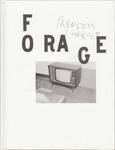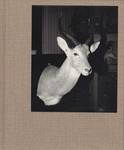AUSTRIAN POST: A GOOD YEAR FOR AUSTRIAN POST IN 2018: Increase in revenue (+1.0%) and earnings (+1.5%)
14.03.2019, 25519 Zeichen
Corporate news transmitted by euro adhoc with the aim of a Europe-wide distribution. The issuer is responsible for the content of this announcement.
Annual Result
Vienna - Revenue increase in 2018 on the back of robust mail business and parcel growth - Revenue up by 1.0% to EUR 1,958.5m - Mail decline (-2.5%) offset by parcel increase (+11.5%)
Earnings increase based on good revenue development - EBITDA increased by 3.7% to EUR 305.4m - EBIT up by 1.5% to EUR 210.9m
Attractive dividend policy and outlook for 2019 confirmed - Dividend proposal of EUR 2.08 per share (+1.5%) to the Annual General Meeting - Aiming for stability in revenue and operating earnings also in 2019
Austrian Post will become a delivery partner of Deutsche Post DHL Group in Austria - Cooperation planned in the course of 2019 upon review by competition authorities
The business of Austrian Post has developed very well in 2018. Group revenue increased by 1.0% to EUR 1,958.5m. Growth in the parcel business (+11.5%) could offset the decline in the mail Business (-2.5%) in spite of the challenging market environment. Austrian Post has also succeeded in achieving its 2018 targets. Based on the solid revenue development combined with stringent cost discipline, Group EBIT amounted to EUR 210.9m, comprising a year-on-year increase of 1.5%.
The mail business area in the reporting period continued to be characterised by a general decrease in addressed letter mail volumes caused by electronic substitution, lower direct mail revenue compared to the strong advertising business in the previous year and a redimensioned financial services business. The new product and rate model which took effect on July 1, 2018, offering customers the option to choose between time-critical and not time-critical mail items, had a positive impact on revenue development.
Significant increases were generated in the parcel business, where Austrian Post profited from dynamic market growth driven by the ongoing e-commerce trend. The related competition and price pressure remain high. Parcel volumes have increased by 11% to 108 million parcels despite these challenging conditions.
Further volume growth is expected in the parcel segment despite own delivery by a large-volume customer in the Vienna region. "The top priority is to double the logistics capacity of Austrian Post in the medium term", says Chief Executive Officer Georg Pölzl. "The first step of a comprehensive investment programme was already taken through the construction of a new logistics centre in Hagenbrunn", Pölzl adds. The facility is scheduled to be completed in the summer of 2019, enabling additional sorting capacity of up to 14,000 parcels per hour. This implies a 25% expansion of the existing capacity. Construction of a new logistics centre in Kalsdorf near Graz is in preparation. The ground-breaking ceremony will take place on March 18, 2019.
On the basis of the good earnings, strong cash flow and solid balance sheet, the Management Board will propose that the Annual General Meeting approves a dividend of EUR 2.08 per share for the 2018 financial year (2017: EUR 2.05 per share). The 1.5% dividend increase is consistent with EBIT growth. This once again underlines the positioning of Austrian Post as a reliable and predictable investment. This is also beneficial for the employees. For the last 17 years Austrian Post has voluntarily offered its employees a profit-sharing scheme. Eligible employees will receive a bonus of EUR 889, which is by 1.6% higher than in the previous year.
Austrian Post is striving for stability in its operating earnings once again in the 2019 financial year. The efficiency of services should be increased, accompanied by a change in structures and processes. For example, mail and parcel logistics are combined under one unified operational management as of the beginning of 2019. The objective is to leverage further synergies in the new structure based on volume forecasts for Austrian Post's mail and parcel business in order to further expand its role as the quality leader on the Austrian mail and parcel market. The long-term partnership con-cluded with Deutsche Post DHL Group will also contribute to this. The cooperation is subject to a review by the Austrian and German competition authorities. Subject to the favourable decision to be taken, this partnership should start in the course of 2019, in which case the delivery of DHL parcels to private customers in Austria will be handled by Austrian Post.
"The key to our success is the capability to precisely satisfy current customer needs", CEO Georg Pölzl states. "Our comprehensive delivery services throughout Austria stand for quality and reliability. This is guaranteed on a daily basis by the tireless commitment of our employees, for which we would like to sincerely thank them. Together we will succeed in remaining the preferred partner of our customers", Georg Pölzl concludes.
KEY FIGURES
Change 2017/2018 EUR m 2017 2018 % EUR m Q4 2017 Q4 2018 Revenue 1,938.9 1,958.5 1.0% 19.6 534.3 542.1 Mail & Branch Network 1,447.8 1,412.3 -2.5% -35.6 392.5 384.9 Parcel & Logistics 495.6 552.4 11.5% 56.9 143.1 159.6 Corporate/ -4.5 -6.2 -38.9% -1.7 -1.4 -2.4 Consolidation Other operating income 112.7 96.2 -14.7% -16.5 69.5 22.3 Raw materials, consumables and -409.9 -441.2 -7.6% -31.3 -113.4 -128.0 services used Staff costs -1,020.1 -1,008.7 1.1% 11.4 -275.3 -251.8 Other operating -325.0 -295.7 9.0% 29.3 -118.3 -84.5 expenses Results from financial assets accounted for -1.9 -3.6 -85.4% -1.7 -0.8 -1.9 using the equity method EBITDA 294.6 305.4 3.7% 10.8 95.9 98.3 Depreciation, amortisation and -86.8 -94.5 -8.9% -7.7 -28.0 -29.4 impairment losses EBIT 207.8 210.9 1.5% 3.1 67.9 68.9 Mail & Branch Network 289.6 289.8 0.1% 0.2 89.6 90.7 Parcel & Logistics 42.8 41.3 -3.5% -1.5 13.9 14.7 Corporate/ -124.7 -120.2 3.5% 4.4 -35.6 -36.5 Consolidation Other financial result 12.8 -13.1 <-100% -25.9 12.2 -17.3 Earnings before tax 220.6 197.8 -10.3% -22.8 80.0 51.6 Income tax -55.6 -53.6 3.6% 2.0 -20.9 -12.7 Profit for the period 165.0 144.2 -12.6% -20.8 59.1 38.9 Earnings per share 2.45 2.13 -13.0% -0.32 0.88 0.57 (EUR)1 Cash flow from 255.7 295.9 15.7% 40.2 89.1 43.4 operating activities Investment in property, plant and -102.1 -139.4 -36.6% -37.3 -52.6 -53.2 equipment (CAPEX) Free cash flow 146.6 158.4 8.0% 11.8 30.7 28.7 Free cash flow before acquisitions/ 178.3 231.9 30.0% 53.6 43.1 27.2 securities and Growth CAPEX2
1 Undiluted earnings per share in relation to 67,552,638 shares 2 2017: Free cash flow before acquisitions/securities and new corporate headquarters
EXCERPTS FROM THE GROUP MANAGEMENT REPORT:
REVENUE DEVELOPMENT IN DETAIL The Group revenue of Austrian Post improved by 1.0 % to EUR 1,958.5m in the 2018 financial year. Revenue growth of 11.5 % in the Parcel & Logistics Division compensated for the 2.5 % revenue decline in the Mail & Branch Network Division. The Mail & Branch Network Division accounted for 71.9 % of the Group revenue. Revenue development during the period under review continued to be impacted by the fundamental decline in addressed letter mail as a result of electronic substitution, lower direct mail revenue compared to the strong advertising business in the previous year and the redimensioning of the financial services business. In turn, the new product structure, expansion in the area of Mail Solutions and growth driven by higher international e-commerce volumes helped to increase revenue. The Parcel & Logistics Division generated 28.1 % of the total Group revenue in the reporting period against the backdrop of an ongoing upward trend. The 11.5 % revenue increase was driven primarily by the organic volume growth in Austria.
Revenue of the Mail & Branch Network Division totalled EUR 1,412.3m in the 2018 financial year. Of this amount, 57.0 % can be attributed to the Letter Mail & Mail Solutions business, Direct Mail accounted for 27.1 % of total divisional revenue and Media Post had a share of 9.3 %. Branch Services generated 6.6 % of the division's revenue.
Letter Mail & Mail Solutions revenue amounted to EUR 804.8 m, representing a year-on-year increase of 2.8 %. The downward volume development as a consequence of the substitution of letters by electronic forms of communication continued. Revenue was also impacted by various special effects. Transported volumes were supported by numerous one-off mailings by banks. Furthermore, a positive pricing outcome took place due to the launch of the new product structure as of July 1, 2018. Moreover, the additional revenue of EUR 18.2m was achieved by increased international e-commerce volumes, which were partly recognised as direct mail revenue in the previous year. New services for the transport of traditional letter mail also increased the revenue. The Mail Solutions business area generated a higher revenue of EUR 5.0 m, mainly in the fields of document logistics and output management. Furthermore, the 2018 financial year had two more working days than in the previous year. In contrast, Austrian Post's exit from the mail business in South East and Eastern Europe as well as the segment change of the Croatian subsidiary Weber Escal d.o.o. assigned to the Parcel & Logistics Division since January 1, 2018 have negatively impacted revenue. Revenue of the Direct Mail business amounted to EUR 382.6m in 2018, comprising a year-on-year decline of 7.4 %. The revenue decrease resulted from a drop in operating revenue of about 2 - 3 % and the previously mentioned change in the product assignment of international mail items currently presented under Letter Mail. In addition, increased direct mail revenue was generated in the previous year due to higher special effects from elections and a strong rise related to selected sales initiatives. Several customers showed uncertainty with respect to addressed mail items as a result of the new General Data Protection Regulation. Similarly, the exit of Austrian Post from the direct mail business in South East and Eastern Europe also had the effect of reducing the revenue. Media Post revenue from the delivery of newspapers and magazines was down by 4.3 % in a year-on-year comparison to EUR 131.2m. This development is mainly attributable to the declining subscription business for newspapers and magazines. Branch Services revenue amounted to EUR 93.7m in the 2018 financial year, below the prior-year figure of EUR 114.6m. In line with the agreement concluded with the banking partner BAWAG P.S.K., the termination of the partnership will take place by the end of 2020. Revenue from consulting services will be continuously reduced in 2019. The change in accounting treatment of sales in the area of telecommunications and services in line with IFRS 15 also reduced the revenue, accompanied with a decrease in the corresponding expense item.
Total revenue of the Parcel & Logistics Division increased to EUR 552.4m from EUR 495.6m in the previous year. The segment change of the Croatian subsidiary Weber Escal d.o.o. effective January 1, 2018 increased the revenue during the reporting period, given the fact that the company was still recognised as part of the Mail & Branch Network Division in the prior-year period. ACL advanced commerce labs GmbH, which has been fully consolidated since November 1, 2017, also contributed to revenue growth of the division. Adjusted for Weber Escal d.o.o. and ACL advanced commerce labs GmbH, the divisional revenue was up by 8.1 %. This strong growth in the parcel business resulted mainly from the ongoing e- commerce trend in Austria, which in turn led to a substantial increase in private customer parcels. Generally speaking, the Austrian parcel market is developing very dynamically. Intense competition still prevails. At the same time, the demand for quality and delivery speed as well as price pressure are increasing. From a regional perspective, 80.4 % of the total revenue in the Parcel & Logistics Division was generated in Austria in 2018, and 19.6 % by the subsidiaries in South East and Eastern Europe. The business in Austria showed revenue growth of 11.4 % in 2018. Taking account of the full consolidation of ACL advanced commerce labs GmbH, the increase in revenue equalled 10.0 % in Austria on a like-for-like basis. Revenue in the highly competitive South East and Eastern European region was up by 11.8 % during the period under review. Divisional revenue in the CEE/SEE region in 2018 showed a stable development taking into account the segment change of Weber Escal d.o.o., Croatia.
EXPENSE AND EARNINGS DEVELOPMENT Staff costs comprise a major factor in the cost structure of Austrian Post's operating expenses. Accordingly, 54.8 % of total operating expenses incurred by Austrian Post in 2018 were attributed to staff costs. The second largest expense item, accounting for 24.0 % of operating expenses, was raw materials, consumables and services used, of which a large part related to external transport services. Other operating expenses comprised 16.1 % of total costs, whereas depreciation, amortisation and impairments accounted for 5.1 %.
Austrian Post's staff costs amounted to EUR 1,008.7m in the 2018 financial year, equating to a year-on-year decline of 1.1 %. The included operational staff costs for wages and salaries were largely stable compared to the previous year. The underlying objective is to ensure that steady efficiency improvements and structural changes make it possible to offset salary increases mandated by collective wage agreements. On balance, the Austrian Post Group employed an average of 20,545 people (fulltime equivalents) in the 2018 financial year, compared to 20,524 employees in 2017.
In addition to operational staff costs, staff costs of Austrian Post also include various non-operational costs such as termination benefits and changes in provisions, which are primarily related to the specific employment situation of civil servants at Austrian Post. Non-operational staff costs including changes in provisions and various parameter adjustments in the 2018 financial year were below the prior-year level due to various parameter adjustments. As in the previous year, provisions allocated for the redimensioning of financial services totalling EUR 21.5m in the 2018 financial year comprised the largest share of these costs. In contrast, lower expenses for social plan models had the opposite effect.
Raw materials, consumables and services used increased by 7.6 % to EUR 441.2m during the financial year 2018, which was primarily related to higher transport costs as a result of increased parcel volumes.
Earnings show a stable to slightly positive development. EBITDA at EUR 305.4m was 3.7 % above the previous year, corresponding to an EBITDA margin of 15.6 %. In total, depreciation, amortisation and impairment losses in the reporting period amounted to EUR 94.5 m, compared to EUR 86.8m in the previous year. Planned depreciation and amortisation increased to EUR 80.6 m, whereas impairment losses at EUR 13.9m were slightly below the prior-year level. The impairment losses recognised in the 2018 financial year primarily related to adjustments made to goodwill as well as impairment losses on real estate in Croatia and Austria. EBIT in 2018 totalled EUR 210.9m compared to EUR 207.8m in the previous year. The EBIT margin equalled 10.8 %.
The other financial result fell from EUR 12.8m in 2017 to minus EUR 13.1m in the 2018 financial year. The other financial result in the previous year included a positive effect in the amount of EUR 11.0m from the sale of shares in BAWAG Group AG. In contrast, there was a negative effect in the reporting period resulting from the write-down of EUR 14.4m related to shares of FinTech Group AG. Earnings before tax were EUR 197.8m in 2018 compared to EUR 220.6m in the previous year. The income tax expense in the reporting period amounted to EUR 53.6 m, down by EUR 2.0m from the 2017 financial year. After deducting income tax, the Group's profit for the period (profit after tax) totalled EUR 144.2 m, compared to the prior-year figure of EUR 165.0m. Accordingly, undiluted earnings per share were EUR 2.13 for the 2018 financial year compared to EUR 2.45 in the previous year.
From a divisional perspective, EBITDA of the Mail & Branch Network Division totalled EUR 311.2m in 2018, comprising a decrease of 0.5 % from the prior-year period. Divisional EBIT improved by 0.1 % in the period under review to EUR 289.8m. The high level of cost discipline intensified synergies in logistics as a result of the increased delivery of parcels and packets by letter mail logistics have positively impacted earnings.
The Parcel & Logistics Division achieved revenue growth against the backdrop of intense competition and margin pressure and generated an EBITDA of EUR 54.9m (- 5.5 %) and EBIT of EUR 41.3m (-3.5 %) in the 2018 financial year. This decrease is mainly attributable to higher costs in the logistics network to avoid capacity bottlenecks as well as an increase in IT expenses. EBIT of the Corporate Division (incl. Consolidation) improved by EUR 4.4m to minus EUR 120.2m, primarily due to the reduced need to allocate provisions in comparison to the previous year.
The Corporate Division provides non-operational services for the purpose of managing and controlling at a Corporate Group level. These services include, among others, the management of commercial properties owned by the Group, the provision of IT services, the development of new business models, and the administration of the Internal Labour Market of Austrian Post.
CASH FLOW AND BALANCE SHEET The cash flow in the 2018 financial year was impacted by various special effects. A special payment of EUR 107.0m from BAWAG P.S.K. in connection with the termination of the cooperation agreement with Austrian Post less the financial services provided in the amount of EUR 37.0m in the reporting period resulted in a positive special cash flow effect of EUR 70.0m. In contrast, higher maintenance and growth CAPEX totalling EUR 139.4 m, above the prior-year level of EUR 102.1 m, had the opposite effect. Higher payments relating to provisions and the income tax expense as well as the acquisition of a 6.5 % shareholding in FinTech Group AG within the context of the planned financial services partnership also reduced the cash flow. The gross cash flow totalled EUR 352.9m in the 2018 financial year, compared to EUR 316.6m in the prior-year period. The cash flow from operating activities amounted to EUR 295.9m in the period under review, up from EUR 255.7m in the previous year. The cash flow from investing activities amounted to minus EUR 137.5m in 2018 in comparison to minus EUR 109.1m in the previous year. This increase resulted from payments for the acquisition of property, plant and equipment (CAPEX) and relates mainly to payments for investments made as part of the parcel logistics capacity expansion programme. Growth CAPEX in the reporting period amounted to EUR 58.1m. The disposal of property, plant and equipment had the opposite effect. The free cash flow before acquisitions/securities and growth CAPEX amounted to EUR 231.9m in the 2018 financial year, compared to the prior-year level of EUR 178.3m. This provides a good foundation for Austrian Post's ability to finance investments and dividends in the future.
Austrian Post pursues a conservative balance sheet policy and financing structure. This is demonstrated by the high equity ratio, low financial liabilities and the solid amount of cash and cash equivalents invested at the lowest possible risk. The balance sheet total of Austrian Post amounted to EUR 1,681.2m as at December 31, 2018. On the assets side, property, plant and equipment constituted the largest single balance sheet item at EUR 652.8 m, whereas intangible assets totalled EUR 83.3m. This included goodwill of EUR 58.7m reported for acquisitions as at December 31, 2018. Receivables, constituting the second largest single balance sheet item on the asset side, totalled EUR 320.2m. The equity and liabilities side of the balance sheet is characterised by a high equity ratio of 41.6 % as at December 31, 2018. This corresponds to equity of EUR 699.1m. Non-current liabilities were EUR 421.7m at the end of the reporting period, whereas current liabilities totalled EUR 560.4m.
OUTLOOK 2019 Current developments in Austrian Post's core business show that the basic trends in the mail and parcel business are expected to continue. The traditional addressed letter mail business is anticipated to show ongoing volume declines of about 5 % annually in the future. In contrast, the direct mail business strongly depends on the economic environment as well as the advertising behaviour of high-volume senders.
Prospects for the market development of the parcel business are considered to be clearly positive. Against the backdrop of further growth in online business, upper single-digit market growth is expected. This sector is characterised by high demands imposed on delivery quality and speed as well as innovative service solutions. In turn, it is impacted by changed competitive conditions and price pressure.
In the light of this market environment, Austrian Post once again forecasts a stable revenue development in the 2019 financial year (2018 revenue: EUR 1,958.5 m). The underlying planning assumptions are the ongoing trends in the letter mail and direct mail markets. It is also assumed that the postage rate model introduced on July 1, 2018 (next-day PRIO delivery and ECO delivery within 2 - 3 days) will continue to be well received.
Austrian Post's parcel business will further expand in 2019. It is expected that the quality and performance advantages of Austrian Post will be reflected in revenue increases against the backdrop of higher competition and price pressure as well as own delivery in Vienna on the part of a large-volume customer.
The company's branch network is currently dissolving the financial services cooperation with the previous banking partner. However, the goal remains of maintaining the offering of financial services in the branch network in the future because it is an important and meaningful complement for customers to Austrian Post's range of services.
In addition to numerous market initiatives, the capacity expansion investment programme in the parcel business is of considerable importance to the further development of the company. The objective is to gradually double the 2018 sorting capacity in the years to come. For this reason, in addition to maintenance investments of about EUR 70 m, in excess of EUR 50m of growth investments are planned again for 2019. Moreover, there is the possibility of expanding existing commercial properties or newly acquiring land, for example by the existing logistics centre in the south of Vienna. Capacity is already expected to increase by 25 % when the parcel centre in Hagenbrunn to the north of Vienna is put into operation in the summer of 2019.
In terms of its earnings, Austrian Post is also pursuing the target of achieving stability in its operating results of the core business in 2019 (2018 EBIT: EUR 210.9 m). An important priority will be to enhance the efficiency of services and change structures and processes. For example, mail and parcel logistics were merged under one unified operational management at the beginning of 2019. The aim is to leverage further synergies in the new organisational structure as a means of further expanding upon Austrian Post's role as the quality leader on the Austrian mail and parcel markets. This is based on volume forecasts for Austrian Post's mail and parcel business. Furthermore, business plans will be examined in 2019 to what extent Austrian Post can continue offering financial services in the future.
Stability and security comprise the cornerstones of the company's financial management. In recent years the company has generated the financial resources for the required growth investments, and they will now be used to expand Austrian Post's strategic positioning. The operating cash flow generated by Austrian Post will continue to be used prudently and in a targeted manner to finance sustainable investments in business operations and to pay dividends.
The Management Board will propose to the Annual General Meeting scheduled for April 11, 2019, to approve the distribution of a dividend in the amount of EUR 2.08 per share. Thus, the company is once again continuing its attractive and predictable dividend policy on the basis of a solid balance sheet structure and generated cash flow. Austrian Post continues to pursue the objective of distributing at least 75 % of the Group's net profit to its shareholders.
end of announcement euro adhoc
issuer: Österreichische Post AG Rochusplatz 1 A-1030 Wien phone: +43 (0)57767-0 FAX: mail: investor@post.at WWW: www.post.at ISIN: AT0000APOST4 indexes: ATX stockmarkets: Wien language: English
Digital press kit: http://www.ots.at/pressemappe/2209/aom

Börsepeople im Podcast S12/08: Robert Abend
Österreichische Post
Uhrzeit: 07:16:56
Veränderung zu letztem SK: -0.39%
Letzter SK: 31.80 ( 0.47%)
Bildnachweis
Aktien auf dem Radar:Amag, Palfinger, SBO, Addiko Bank, Flughafen Wien, Austriacard Holdings AG, EVN, EuroTeleSites AG, Pierer Mobility, Semperit, Bawag, Kostad, Wolford, Oberbank AG Stamm, Polytec Group, ams-Osram, Agrana, CA Immo, Erste Group, Immofinanz, Kapsch TrafficCom, Mayr-Melnhof, OMV, Österreichische Post, Strabag, Telekom Austria, Uniqa, VIG, Wienerberger, Covestro, Sartorius.
Random Partner
Knaus Tabbert
Die Knaus Tabbert AG ist ein führender Hersteller von Freizeitfahrzeugen in Europa mit Hauptsitz im niederbayerischen Jandelsbrunn. Weitere Standorte sind Mottgers, Hessen, Schlüsselfeld sowie Nagyoroszi in Ungarn. Das Unternehmen ist seit September 2020 im Segment Prime Standard der Frankfurter Wertpapierbörse notiert.
>> Besuchen Sie 68 weitere Partner auf boerse-social.com/partner
Mehr aktuelle OTS-Meldungen HIER
Useletter
Die Useletter "Morning Xpresso" und "Evening Xtrakt" heben sich deutlich von den gängigen Newslettern ab.
Beispiele ansehen bzw. kostenfrei anmelden. Wichtige Börse-Infos garantiert.
Newsletter abonnieren
Runplugged
Infos über neue Financial Literacy Audio Files für die Runplugged App
(kostenfrei downloaden über http://runplugged.com/spreadit)
per Newsletter erhalten
| AT0000A39UT1 | |
| AT0000A2SUY6 | |
| AT0000A2C5J0 |
- Neues Kursziel für Verbund
- UBM-Vorstand Schaller kauft weitere Aktien
- Wie Sartorius, Sixt, Varta AG, Biofrontera, Snapc...
- Wie Varta AG, HelloFresh, Lufthansa, Ambarella, N...
- Wie UnitedHealth, Travelers Companies, salesforce...
- Wie Sartorius, Rheinmetall, adidas, Continental, ...
Featured Partner Video

Wiener Börse Party #629: Wienerberger 155, B&C überlegt Changes bei Amag, Lenzing und Semperit, Fonds selbstbewusst vs. ETFs
Die Wiener Börse Party ist ein Podcastprojekt für Audio-CD.at von Christian Drastil Comm.. Unter dem Motto „Market & Me“ berichtet Christian Drastil über das Tagesgeschehen an der Wiener Börse....
Books josefchladek.com

Ta-ra
2023
ediciones anómalas

A Way of Seeing
1965
The Viking Press

Terra Vermelha
2023
Void

Berlin. Symphonie einer Weltstadt
1959
Ernst Staneck Verlag





 Christian Reister
Christian Reister François Jonquet
François Jonquet Carlos Alba
Carlos Alba Sebastián Bruno
Sebastián Bruno Stefania Rössl & Massimo Sordi (eds.)
Stefania Rössl & Massimo Sordi (eds.)